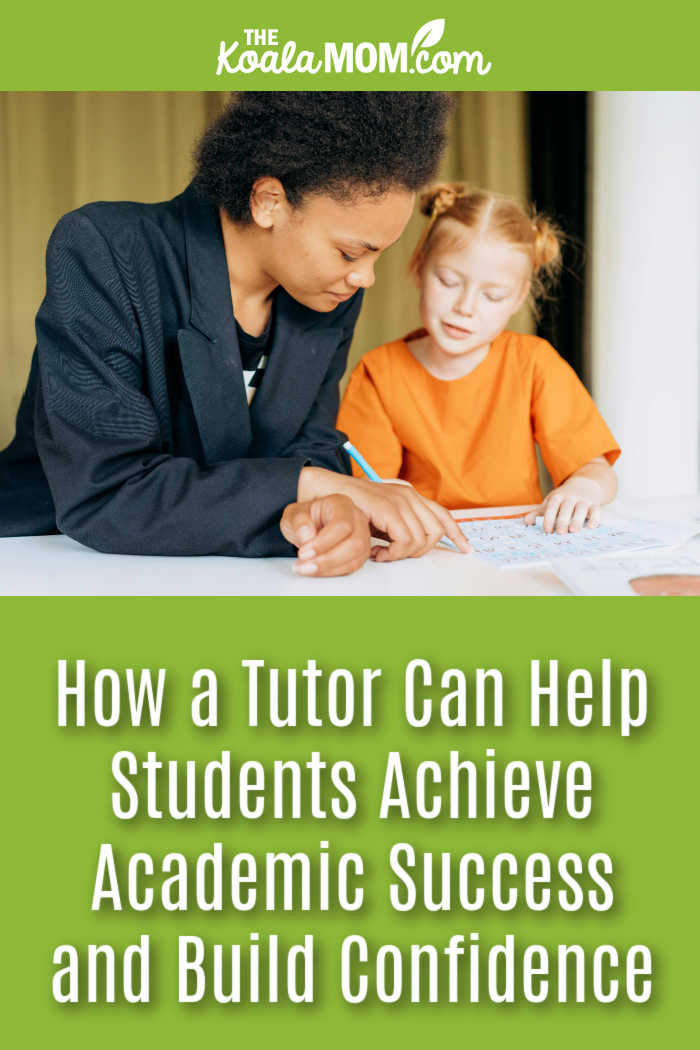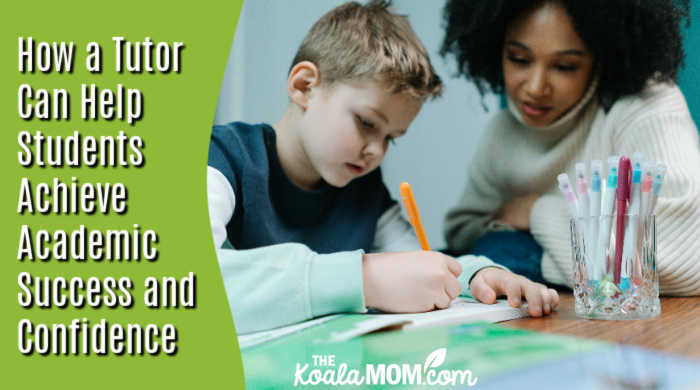Academic success is not just about good grades—it’s about fostering a love of learning and building confidence along the way. One of the best ways to achieve this is with the support of a skilled tutor. Tutors can offer personalized guidance, helping students tackle difficult subjects, improve study habits, and develop a deeper understanding of the material.
Whether it’s mastering challenging concepts, preparing for exams, or boosting overall motivation, tutors can be a game-changer. In this post, we’ll explore six ways a tutor can help students not only succeed academically but also build the confidence they need to excel in school and beyond.
Let’s dive into how tutoring can unlock a world of opportunities for every learner.

Personalized Learning Plans to Address Individual Needs
Every student has unique strengths and weaknesses when it comes to learning. Tutors such as No Nonsense Tutoring tailor their approach to meet the specific needs of the student, ensuring no one is left behind. Unlike a classroom setting where teaching is designed for the masses, tutoring allows for a more personalized experience. A tutor can identify areas of difficulty and adapt their teaching methods accordingly, whether it’s explaining complex concepts in simpler terms or offering additional practice.
For example, as a mom of five kids, two of whom are neurodiverse, I’ve often seen how my kids each learn in their own way and have their own needs. Four of my kids used the same learn-to-read program; two went through it from start to end, one struggled with it and needed a different program, and one taught herself to read after using the program for only a couple months. Whether your child has a diagnosis or not, a tutor can help your child learn and study in a way that suits her strengths and struggles so that she can achieve her goals at school.
This personalized attention not only enhances understanding but also helps students feel more confident in their abilities. For instance, as seen at That Econs Tutor, an economics tutor can tailor lessons based on the student’s current proficiency and pace, ensuring more effective learning. This individualized approach ensures that students are not overwhelmed by content that’s too advanced or held back by material that’s too easy.
Enhancing Study Habits and Time Management Skills
A tutor can do more than teach academic content—they can also guide students on how to study effectively. Many students struggle with time management and don’t know how to approach their study sessions in a way that maximizes their productivity. A tutor helps by teaching study strategies, setting up realistic goals, and creating structured study schedules.
These skills are often not taught in the classroom; teachers simply hand out assignments and expect students to get them done. During my university days, I saw many of my peer struggle with their time management and with keeping track of assignments and when they were due. My daughter with ADHD seems only aware of deadlines that are tomorrow, and not those that are a week or two away. A tutor can help students learn to manage deadlines more effectively.
By incorporating techniques such as active recall, spaced repetition, and breaking down larger tasks into manageable chunks, students learn not only how to work smarter but also how to stay organized. With these improved study habits, students can feel more in control of their learning and develop a sense of achievement as they see their progress.
Building Confidence through Positive Reinforcement
Confidence plays a pivotal role in academic success, and a tutor can foster this by offering positive reinforcement. Rather than focusing solely on mistakes, tutors celebrate the small victories, which helps students recognize their progress. This approach encourages a growth mindset, where students understand that intelligence can be developed with effort and persistence.
With consistent encouragement and constructive feedback, students begin to view challenges as opportunities for growth rather than obstacles. This positive reinforcement can gradually help students shed self-doubt, making them more confident in their academic abilities and overall potential.
As a mom, I do my best to be my kids’ cheerleader—but I also have to be the one nagging them about homework. I’ve greatly appreciated others in my kids lives who can also speak encouragement into them, whether this is teachers at school, mentors in our community, or their tutors. It can mean a lot to our kids to hear an adult calling out their strengths and abilities. I’ve found my kids are often more willing to hear that from someone other than me, even if a tutor is reinforcing what I am trying to tell them.
Providing Tailored Test Preparation and Exam Strategies
Exams can be stressful, but a tutor’s expertise can turn this anxiety into preparedness. Tutors help students understand the exam format, go over past papers, and practice under timed conditions to simulate the actual test environment. They not only teach the necessary content but also share effective strategies for answering questions, managing time during the exam, and minimizing test anxiety.
This comprehensive exam preparation helps students feel more confident walking into their test. Whether it’s mastering multiple-choice questions or crafting the perfect essay, tutors provide strategies that ensure students are well-prepared and ready to perform their best when it counts.
Encouraging Active Participation and Engagement
One of the key aspects of successful learning is active engagement with the material. A tutor fosters this engagement by encouraging questions, discussions, and interactive learning. Rather than passively listening, students are actively involved in their education. Tutors use various methods like quizzes, problem-solving, logical thinking, and real-world applications to make learning more dynamic and enjoyable.
This interactive approach not only helps students understand the material better but also promotes a sense of ownership over their learning. By becoming active participants, students build a deeper connection with their studies, which leads to greater confidence and a more positive attitude toward school.
Offering Subject-Specific Expertise and Advanced Knowledge
Sometimes, students struggle because they don’t receive the depth of knowledge they need in the classroom. Tutors offer specialized expertise, providing insights and explanations that go beyond what is taught in school. For instance, a tutor who specializes in a subject can break down complex ideas and present them in a way that makes sense, even if the subject is advanced.
Whether it’s tackling calculus, understanding historical events in depth, or diving into scientific principles, a tutor’s specialized knowledge allows students to grasp more intricate concepts. This deeper understanding builds confidence, as students feel more prepared and capable in their subject area.
As a homeschool mom, I’ve spent years teaching my children. However, I’m also aware of my own limitations and lack of expertise, especially around science and math (which I haven’t done since high school). When my daughter needed help with her high school math and science courses, I found tutors for her who knew these topics well, as it wasn’t something I could help with anymore.

A tutor’s role extends far beyond teaching academic content—it’s about helping students build the skills, confidence, and mindset needed to thrive. From personalized learning plans to enhancing study habits and preparing for exams, tutoring provides tailored support that addresses individual needs. By fostering active engagement and offering subject-specific expertise, tutors empower students to not only succeed academically but also develop a love for learning.
With consistent encouragement and guidance, students gain the confidence they need to excel in school and face future challenges with determination and self-assurance.

No Responses Yet